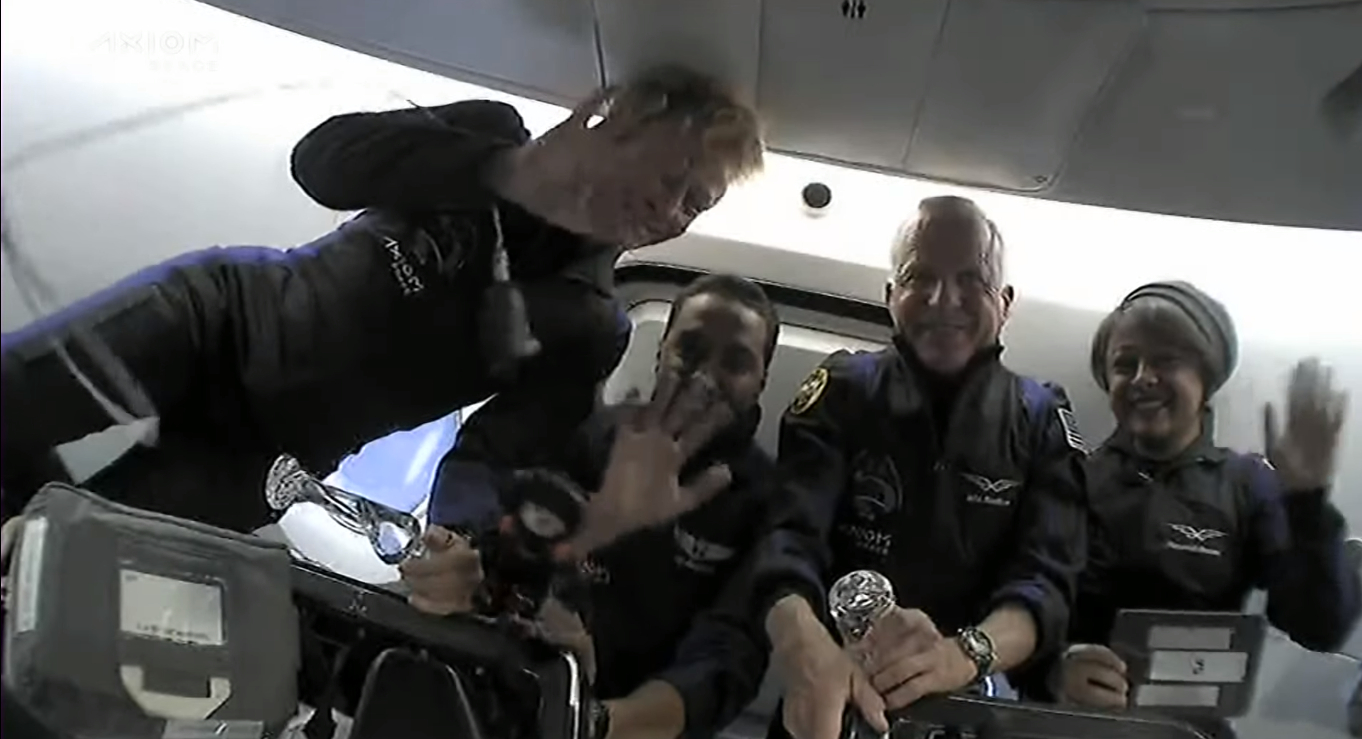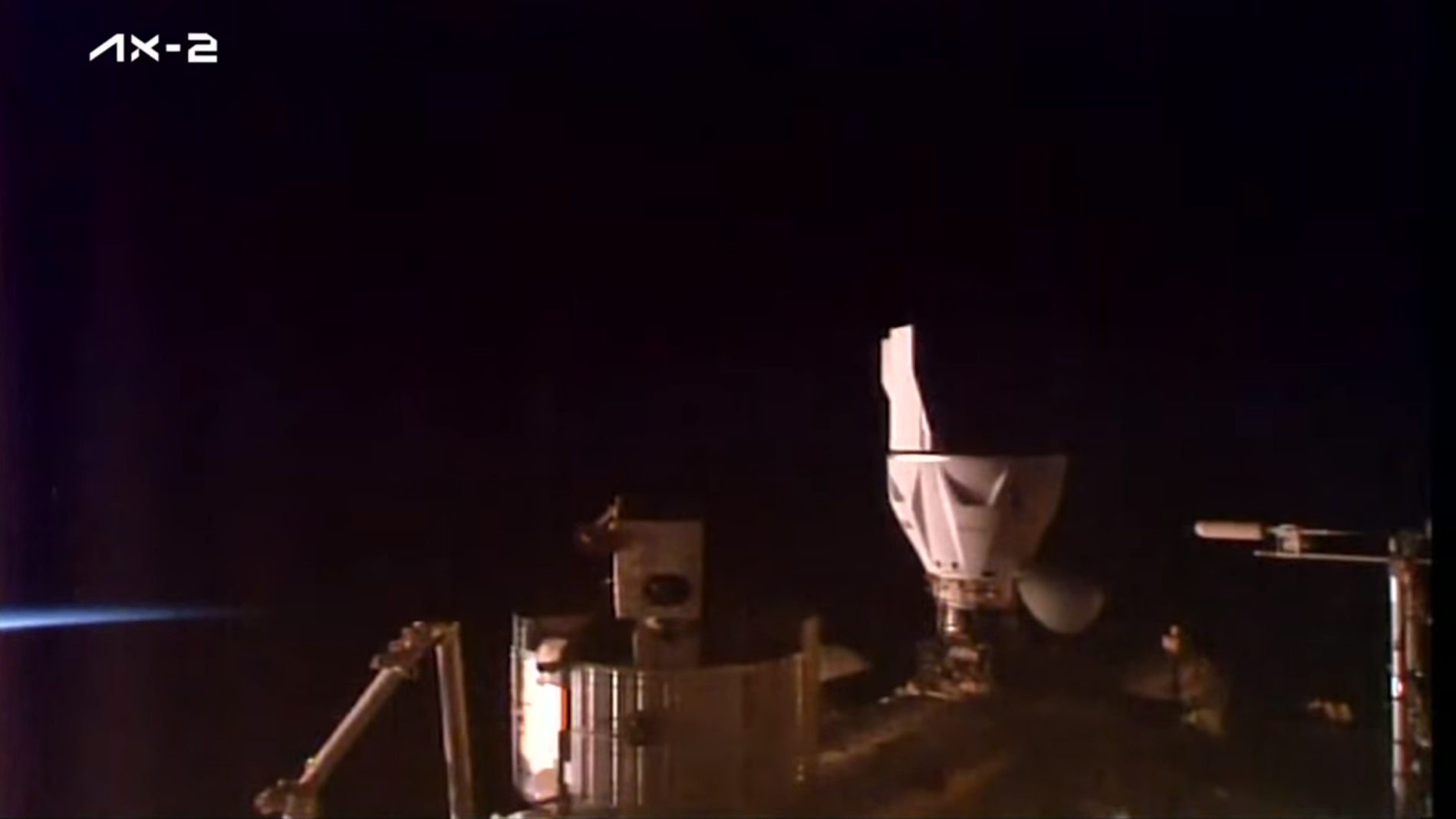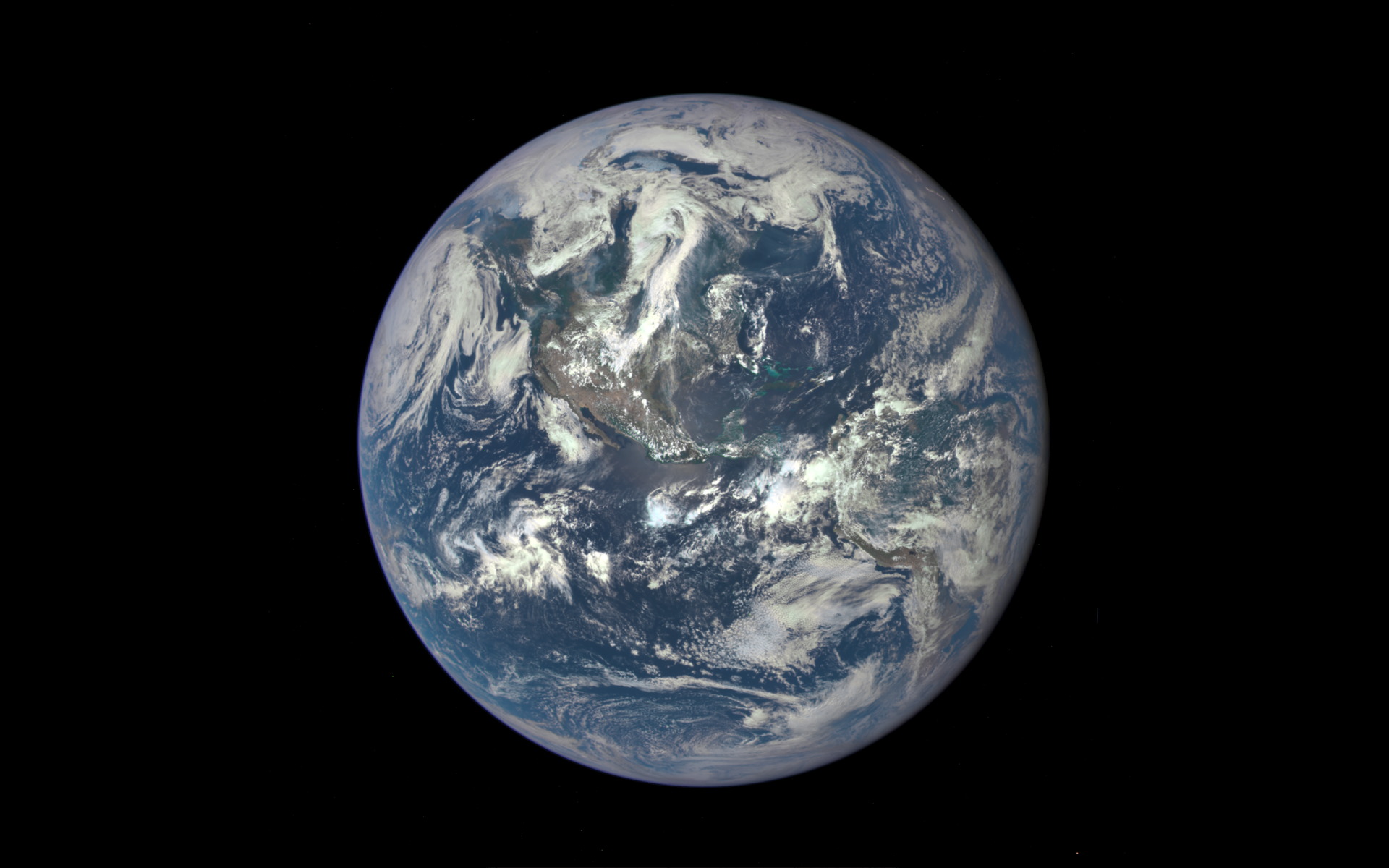'It feels amazing!' Private Ax-2 astronauts thrilled by zero gravity and Earth views after SpaceX launch (video)
"To the people around the world, I would like you to dream big, believe in yourselves and believe in humanity!"
Breaking space news, the latest updates on rocket launches, skywatching events and more!
You are now subscribed
Your newsletter sign-up was successful
Want to add more newsletters?

Delivered daily
Daily Newsletter
Breaking space news, the latest updates on rocket launches, skywatching events and more!

Once a month
Watch This Space
Sign up to our monthly entertainment newsletter to keep up with all our coverage of the latest sci-fi and space movies, tv shows, games and books.

Once a week
Night Sky This Week
Discover this week's must-see night sky events, moon phases, and stunning astrophotos. Sign up for our skywatching newsletter and explore the universe with us!

Twice a month
Strange New Words
Space.com's Sci-Fi Reader's Club. Read a sci-fi short story every month and join a virtual community of fellow science fiction fans!
The Axiom Space Ax-2 crew gave a flight update while on their way to the International Space Station (ISS) early on Monday morning (May 22) as three of the four-person crew revealed their first impressions of space.
Axiom Space's second-ever private mission to the ISS blasted off from NASA's Kennedy Space Center in Florida at 5:37 p.m. EDT (2137 GMT) on Sunday (May 21). The private Ax-2 crew includes mission commander and former NASA astronaut Peggy Whitson, mission pilot John Shoffner, and graduates from Saudi Arabia's first astronaut class, Ali AlQarni, and Rayyanah Barnawi, the latter of whom is the first Saudi woman to travel to space. AlQarni and Barnawi are also the first Saudi astronauts to visit the International Space Station.
"It feels amazing to be viewing Earth from this capsule. We are here feeling microgravity," said Barnawi during the flight, who extended thanks to her country and its leaders and special thanks to her grandmothers. "To the people around the world, I would like you to dream big, believe in yourselves, and believe in humanity!"
Related: SpaceX launches Ax-2 private astronaut mission to station, 1st Saudi woman in space on board (video)
Read more: Axiom Space Ax-2 private spaceflight with SpaceX: Live updates
The Ax-2 crew only had a limited time to address Earth, as the mission could only send live messages back while over a designated ground station. This one came as the crew's SpaceX Crew Dragon spacecraft passed over Los Angeles, granting them just 7 minutes to speak to Earth. The crew spoke from the capsule, named Freedom, as it followed behind the ISS at an altitude of around 186 miles (300 kilometers). As the team addressed Earth, their zero-gravity indicator, a Build-a-Bear cuddly toy replete with its own Axiom Space AxEMU spacesuit, floated around the screen.
Spaceflight rookie and paying passenger Shoffner described the moment the second stage of the Falcon 9 rocket separated from the crew's ride and microgravity kicked in in the Dragon Freedom craft.
"It's pretty amazing, the feeling when the second stage kicks the Dragon off into orbit and you realize instantly you're weightless. It's just an amazing feeling," the first-time astronaut said. "Eventually, we crossed into daylight, and we got our first view of Earth, and it's right outside the window."
Breaking space news, the latest updates on rocket launches, skywatching events and more!
Not all of the crew are first-time astronauts. Whitson, who introduced the crew during the broadcast to Earth with a cheerful "Hey gang," is director of human spaceflight at Axiom Space and has flown on three previous space missions, clocking up an incredible 665 days in space in the process. Whitson already held the distinction of being the first woman to command the ISS, and the Ax-2 mission sees her become the first woman to command a private space mission.
For AlQarni, the journey to the ISS and the 8-day ISS stay feels like the beginning of a longer adventure.
"I look outside into space; I can't help but think this is just the beginning of a great journey for all of us," he said. "So I hope you guys enjoy it with us and dream big because we're gonna get somewhere in the future."
The crew docked at the ISS at 9:28 a.m. EDT (1328 GMT) on Monday (May 22). They will now conduct a series of ambitious science experiments aboard the space station, some of which will be broadcast to children here on Earth who can perform the tests alongside the crew to compare their own results to those of the Ax-2 crew conducting them in microgravity.

Robert Lea is a science journalist in the U.K. whose articles have been published in Physics World, New Scientist, Astronomy Magazine, All About Space, Newsweek and ZME Science. He also writes about science communication for Elsevier and the European Journal of Physics. Rob holds a bachelor of science degree in physics and astronomy from the U.K.’s Open University. Follow him on Twitter @sciencef1rst.


